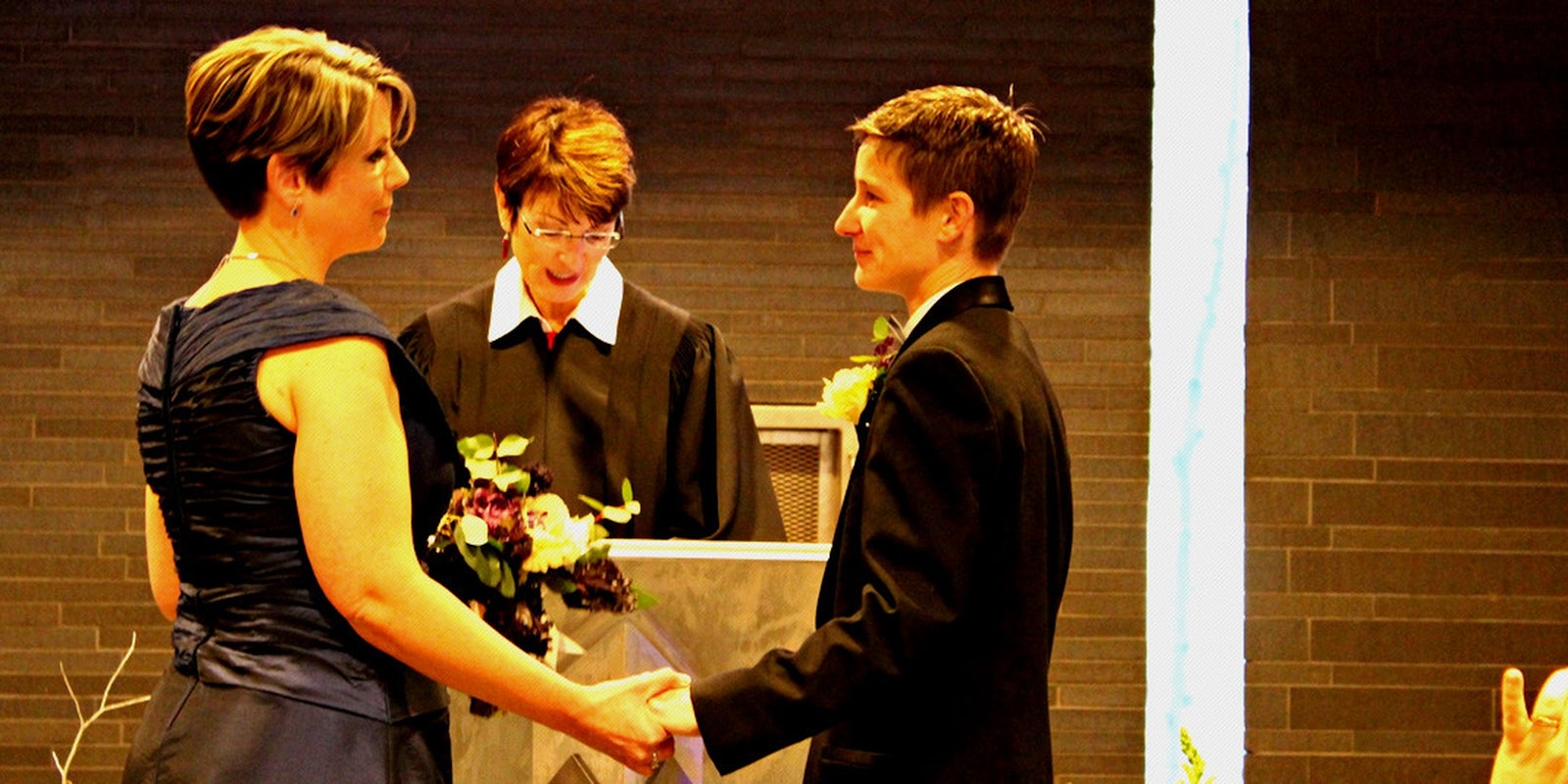The U.S. Supreme Court on Monday denied five states’ appeals of court rulings overturning same-sex marriage bans, effectively giving the green light to marriage equality in the eleven states covered by those court rulings.
Indiana, Oklahoma, Utah, Virginia, and Wisconsin had asked the Supreme Court to reverse appeals court rulings overturning their same-sex marriage bans. The appeals courts had stayed their rulings pending the Supreme Court’s decision. The court’s rejection of the state petitions means that the stays are lifted and the appeals court decisions can take effect.
A ruling by a U.S. Court of Appeals applies in every state in that court’s jurisdiction, so the Supreme Court’s rejection of the five states’ petitions will have spillover effects legalizing gay marriage in six other states. This brings the total number of states with full marriage equality to 30, plus Washington, D.C., meaning that 60 percent of states must now allow gay marriage.
#BREAKING Same-sex marriages will begin today at 1pm in Virginia. Per 4th Circuit Court & VA Attorney General @AGMarkHerring
— Brian Sasser (@ProducerSass) October 6, 2014
For example, when the Supreme Court rejected Oklahoma and Utah’s petition for it to overturn a decision by the U.S. Court of Appeals for the Tenth Circuit, the Tenth Circuit’s decision took effect not just in those two states but also in Colorado, Kansas, and Wyoming.
The Supreme Court rarely steps in to hear cases related to appeals court rulings. The Court is most likely to act when multiple appeals court rulings go in opposite directions, a situation known as a “circuit split.” So far, no appeals court has upheld a same-sex marriage ban, although a district court in Louisiana did so in September.
“The court could still take a future case,” as Reuters notes, “but its move on Monday is likely to send a strong signal to lower court judges that rulings striking down marriage bans are consistent with the U.S. Constitution.”
Although the Court’s decision allows same-sex marriage to proceed in the five petitioning states and the six other states covered by those court rulings, it is not what all marriage equality advocates had been hoping for. Leading gay-rights organization Freedom to Marry criticized the Supreme Court for declining to take on a case that could have ended with a ruling legalizing same-sex marriage nationwide. Evan Wolfson, the group’s president, told the AP that the decision “prolongs the patchwork of state-to-state discrimination and the harms and indignity that the denial of marriage still inflicts on too many couples in too many places.”
Federal appeals courts in Ohio and California are currently reviewing cases involving same-sex marriage bans in their jurisdiction.
Photo via Seattle Municipal Archives/Flickr (CC BY 2.0)


